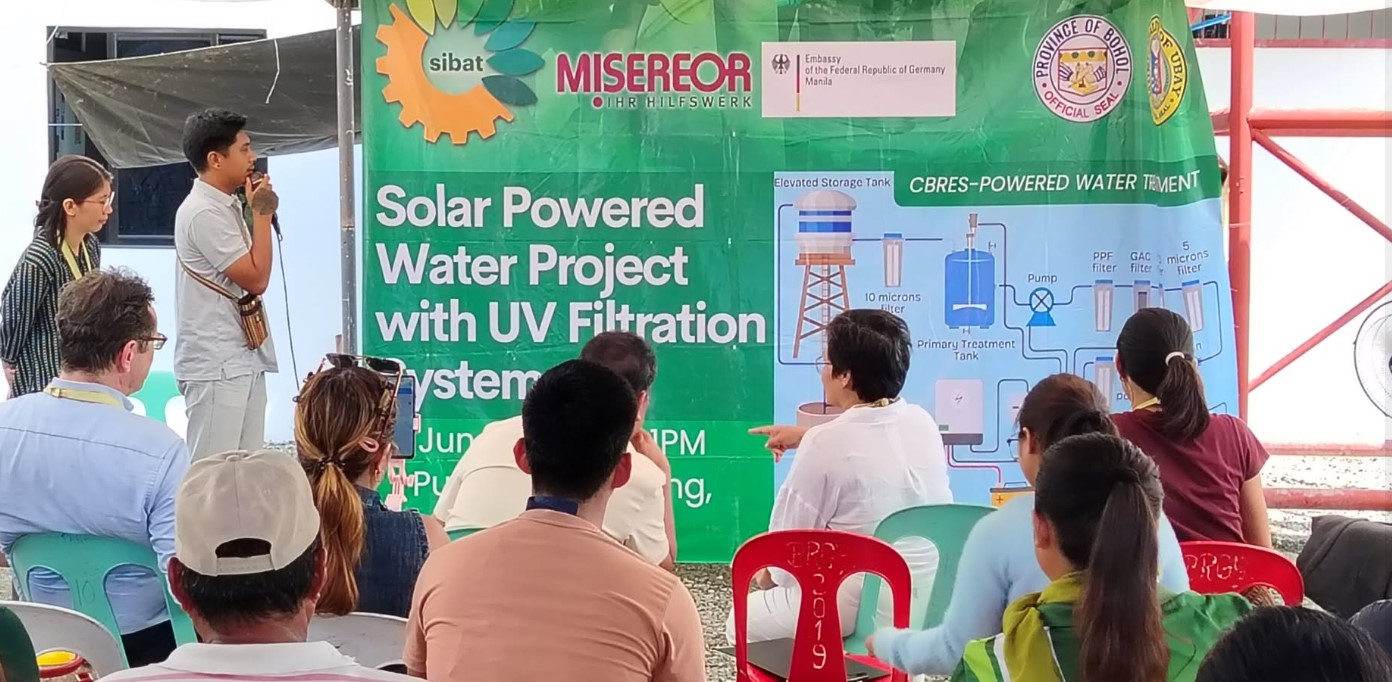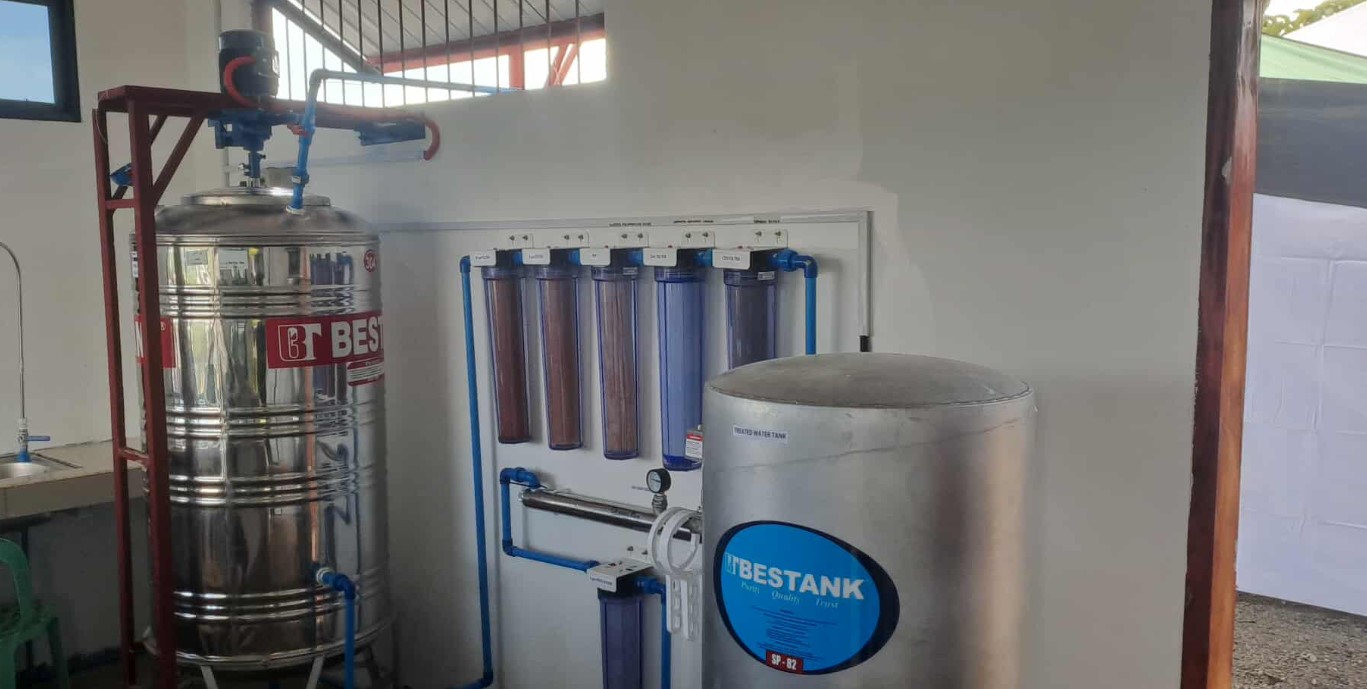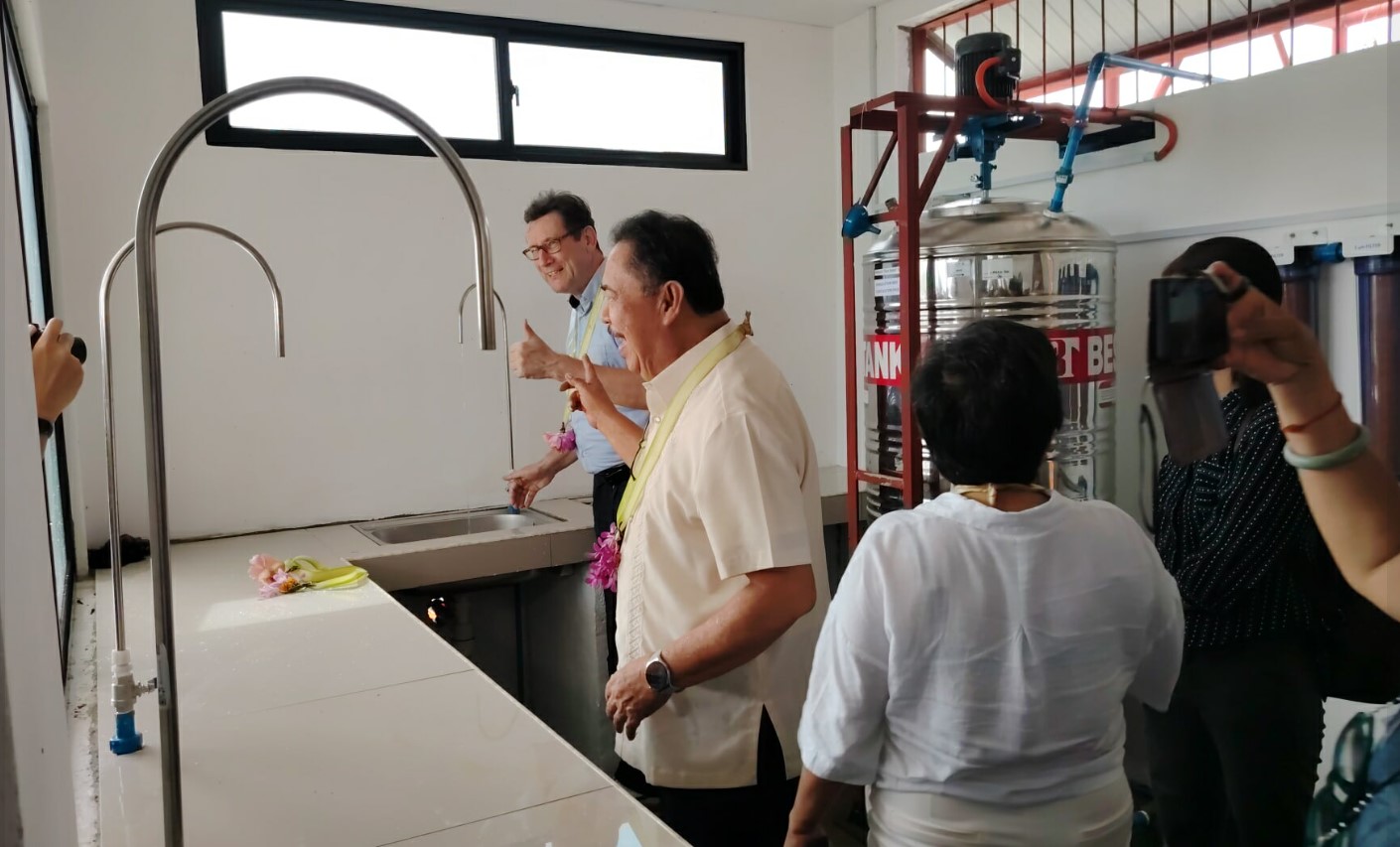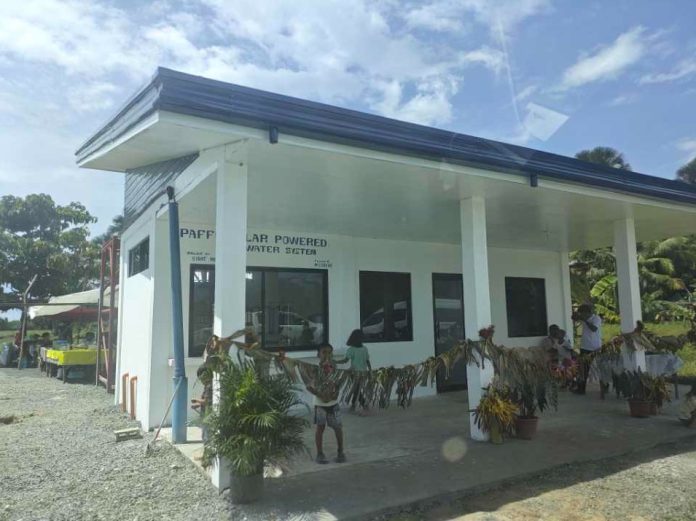Elena, 52, had to wake up as early as 5 am to travel to a nearby barangay so she could buy potable water for her family. Her husband, a fisherman, had to set sail earlier to make sure the family had something to eat for the day.
Life was not easy for Elena and the other residents of Barangay Pang-pang in Ubay, Bohol, a coastal village, where fishing is the main source of income and life remains simple.
For families here, food and water are the essentials, but water has always been a scarce resource.
Residents relied on a deep well, which they said was unfit for drinking or even cooking, for years. The problem worsened after Typhoon Odette, when residents said the water from the shallow well was no longer dependable even for other uses.
Many were forced to travel to neighboring barangays to buy water at ₱25 per gallon, a cost that ate into their already modest income.
“It was too much of a burden, especially for us whose income is barely enough for daily sustenance,” said Elena, not her real name.
But after years of scarcity and dependence on nearby barangays for clean and safe water, residents of Barangay Pang-pang are finally enjoying access to potable water within their own community.

The change came in June 2025 with the turnover of a solar-powered water system with UV filtration implemented by Sibol ng Agham at Teknolohia (SIBAT) and funded by Misereor, a Catholic relief agency based in Germany.
The solar-powered facility, with a capacity of 200 gallons per day, draws groundwater, purifies it through filtration, and delivers it to households at minimal cost.
The system removes odor and impurities while being powered entirely by renewable energy.
Sibat Inc said the transformative benefits of the project include access to safe, clean drinking water for about 100 households; reliable, clean water supply powered by solar energy and sanitized by UV filtration system; economic savings for families no longer purchasing commercial water; and eco-friendly solution reducing use of fossil fuel by adopting renewable energy solutions

For residents like Jucedes Torcende, the project brings relief especially after the devastation of Typhoon Odette worsened the community’s water problems.
“We used to worry where to get clean water. Now, we have it here,” he told reporters during the turnover ceremony.
Officials hailed the initiative as a model of collaboration among local government units, NGOs, and international partners.
“This is a positive example of how our government and people can work together for the benefit of communities on the ground,” said Mathias Kruse, Deputy Head of Mission at the Embassy of the Federal Republic of Germany in Manila.
Arthur Evangelista, executive assistant from the Bohol governor’s office, said the project is aligned with the province’s priority to deliver sustainable water systems to underserved barangays.

Pang-pang is the first recipient, with similar projects planned for Mabini and Carmen.
President Ferdinand Marcos Jr. has emphasized that water is as important as food, underscoring the need for efficient management of water resources.
The initiative also supports the United Nations’ Sustainable Development Goals, particularly those related to clean water, sanitation, and affordable clean energy.
For Elena, the change is felt every day.
“We don’t have to wake up early to buy water anymore,” she said. “Now, we can get clean and safe water right here in our barangay.”
In Barangay Pang-pang, where life is simple and fishing sustains most families, the arrival of solar-powered clean water is more than infrastructure; it is dignity restored, hope renewed, and proof that technology can change lives at the most local level.
CebuBusinessNews.ph
